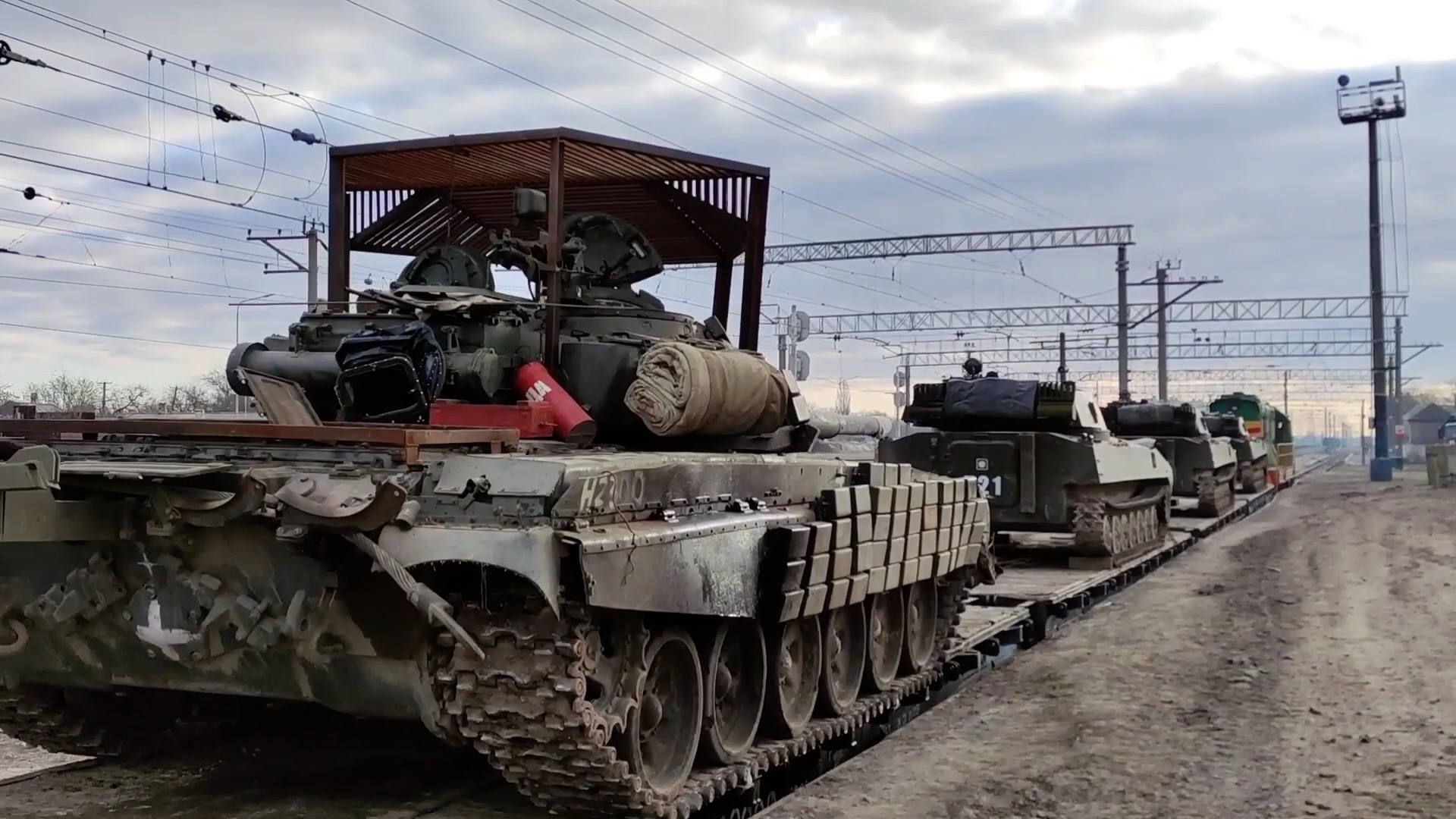Chinese diplomats stay in Kyiv as crisis smolders — China-Russia weekly update
Beijing is expressing some interest in deescalation and diplomacy as Russian troops near the Ukrainian border continue to worry the world.

The Ukraine crisis continues to occupy Chinese foreign policy energy:
- Xí Jìnpíng 习近平, in a February 16 phone call with French President Emmanuel Macron, called for a “political settlement” and the “full use of multilateral platforms.” In its readout of the call, the Élysée noted, “The French President recalled the importance of respecting Ukraine’s sovereignty and territorial integrity.”
- The P.R.C. readout didn’t discuss Ukrainian sovereignty and simply mentioned that “Macron presented his view on the current situation in Ukraine.”
The Party newspaper People’s Daily seems concerned about a conflict’s implications. In one English-language article, it wrote, “The escalation of Russia-Ukraine tensions stoked by the U.S. has raised concerns about potential supply chain disruptions ranging from essential raw materials for semiconductors such as neon, to agricultural products including corn and wheat.” The People’s Daily also published a Chinese-language article titled “Ukraine’s president says he hasn’t seen Russia withdraw” that was markedly sympathetic to the Ukrainian position, even as it blamed the U.S. and Western media for “hyping” the situation.
Chinese diplomats are staying put in Ukraine, for now, despite widespread fears of a Russian invasion.
- In his response to a question from Russian state media on February 14, Chinese Foreign Ministry spokesperson Wāng Wénbīn 汪文斌 said that the Chinese embassy in Kyiv currently maintains normal operations.
We’ll learn more about Putin’s plans soon. The Russian-Belarus military exercises are supposed to end on February 20, and Putin will probably either escalate or withdraw forces within the next two weeks.
- Putin may choose to deescalate, but there are few encouraging signs: The Russian military build-up is only growing, and Putin called the situation in the Donbas a “genocide.”
Natural gas in Central Asia
Turning away from Ukraine, there have been important developments in Central Asia that may influence Sino-Russian energy ties:
Gurbanguly Berdymukhamedov, the current Turkmen strongman, is elevating his 40-year-old son, Serdar, to the presidency.
- Serdar Berdymukhamedov has held roles in energy, the Foreign Ministry’s information department, and diplomacy.
- From 2008 to 2011, Serdar attended the Russian Foreign Ministry’s Diplomatic Academy while working at the Turkmen embassy. This period is notable as most observers (and the Turkmen government) believe that Russia intentionally “vacuum-bombed” a Turkmen natural gas pipeline in May 2009. While Turkmenistan is one of the world’s worst-governed countries, it enjoys an abundance of natural gas and could become a much-larger export player — if it can get its act together.
There are three major unknowns surrounding Turkmenistan.
- Did the Turkmenistan succession influence recent Sino-Russian natural gas negotiations?
- Will Serdar prove to be a more competent leader than his father? Will Turkmenistan be able to produce and export more natural gas — particularly to China?
- If Serdar can transform Turkmenistan into a natural gas export juggernaut, the implications for Sino-Russia relations will be significant.
Finally, in Uzbekistan: The U.S. Geological Survey is partnering with the Uzbek Committee for Geology to survey the country’s mineral resources potential, particularly shale oil and shale gas.
- The two sides “announced the plans to visit by U.S. experts from April to June 2022 as part of previously reached agreements.”
- If Uzbekistan has significant, economically recoverable reserves, then the region — and Sino-Russian relations — could change substantially.
While Central Asian crude oil export potential is limited, the region may be on the cusp of becoming a much more important natural gas exporter.






